
SOCIETY
LESSONS
13 GROUP MENTALITY
We often group people according to biological sex or race – but how real are these apparently ‘natural’ categories?
14 CLUB RULES
There are unspoken, invisible rules that structure society. Some of us see them, some don’t. Do you?
15 MAKING AMENDS
We tend to think that we’re only responsible for crimes we commit ourselves. But what about the ones we benefit from?
16 MORAL RUBBISH
Can you effectively respond to a climate-change sceptic without invoking science? Short answer: yes.
‘The success of a society is to be evaluated primarily by the freedoms that members of that society enjoy.’
Amartya Sen
Humans are social beings. We live with other humans – in the same house, on the same street, in the same village, town or city. Our lives are deeply interconnected. We form lasting relationships and rely on each other for food, shelter and help with the plumbing. We live in a society and it is this peculiar entity – the ‘society’ – that is the subject of the present chapter.
Minimally, a society is a group of people. More often than not, this group is made up of other groups. A lot of societies are composed of numerous smaller communities divided along, for example, religious or geographical lines. The focus of Lesson 13, ‘Group Mentality’, is on our ways of drawing group boundaries. Are some groups more ‘natural’ than others? Are nationalities legitimate groups? Does it make sense to split people up according to biological sex or race?
Much of the time, we don’t really examine why we arrange people in certain ways. It seems inevitable … until we bring philosophy to bear. Philosophers try to examine the hidden reasons behind these groupings. In ‘Club Rules’, we’ll look at the invisible laws that organize society – the background ideas, or ‘ideologies’, that shape the way we live.
We’ll also look at how we function as members of societies. You might think you’re only responsible for the actions you consciously take yourself. But can we take responsibility as a group? In ‘Making Amends’, we’ll look at reasons for thinking we might. Lastly, in Lesson 16, we’ll examine how our group actions, as a global society, are endangering the planet – and why it’s better to bet on climate change rather than to assume it isn’t happening.
As ever, the hope isn’t to solve these problems. We want to ask questions about the questions they raise – and the chapter will finish with a few further puzzles raised by the puzzles within it.

GROUP MENTALITY
Remember at school how everyone used to separate into cliques? The cool kids, the nerdy kids, the sporty kids? Back then, the boundaries seemed irrevocably fixed, and woe betide anyone who tried to cross them. Growing older, the groups became less clear. You could be a nerd about sport. It could be cool to be nerdy. The cliques formed at school began to look arbitrary.
Still, even in adult life, we like to group people. By nationality, for example. Nationality seems a more substantial basis than ‘nerd’. Membership of a nation has legal foundation. Membership of the nation of nerds does not. There are other groupings that appear sturdier still. We separate men and women. We also split people into different races. Many social groupings can appear to be a straightforward reflection of biological fact. People say, and have said for a long time, that there are clear biological differences between men and women, and between people of different races. The groupings are natural. So race and biological sex are – at least the thought goes – what philosophers call, ‘natural kinds’.
To categorize entities into ‘natural kinds’, is – according to Plato – to ‘cut nature at the joints’. In his famous (and grisly) ‘butcher’ analogy, there are real seams in the world – and one of the tasks of the Natural Philosopher is to find them and carve things out accordingly. This was also an ambition of Immanuel Kant (who we met in Lesson 2) in his 1775 treatise, On the Different Races of Man. This unwholesome text is an attempt to classify humans into ‘biological’ kinds and to order these ‘races’ into what he saw to be a natural ‘hierarchy’ – with white people at the top.
As you can see, it’s depressingly easy for racial classification – a distinction between supposed racial groups – to blur into racism – a hierarchy of racial groups.
Many have criticized Kant for promoting a racial hierarchy – and rightly so – but a growing number of philosophers also criticize him for claiming that races are ‘natural kinds’ at all. Here we can dip our toes into an ever-expanding pool known as ‘philosophy of biology’, a central question of which is: Are these kinds actually natural? The answer, with respect to both biological sex and biological race, is: not really. We’ll focus on race (though for more on sex, see the work of the wonderful Judith Jack Halberstam).
Richard Lewontin is a philosopher of biology who challenges the concept of race on scientific grounds. It’s true, he says, that your standard racial markers have a genetic basis – but only minimally true, insofar as skin and hair colour are the result of a specific genetic structure. It’s also true that nobody has ever found a race-distinguishing gene, such that 100% of one race has it, and none of the others do. Analysis also shows that genetic variation within so-called racial groups is much greater than variation across so-called racial groups. Sure, there are some genetic similarities (for example sickle-cell anaemia is more prevalent in Mediterranean groups than in the population of Finland), but these are the exceptions rather than the rule.
Then there’s the conceptual problem for biologists who want to talk about race. In order to find out which genetic factors link members of a race, you have to first pick out the race. But how do we pick out the race before we know who its members are? As Naomi Zack puts it in her book The Ethics and Mores of Race (2011): ‘The word “race” is ambiguous, sometimes referring to skin colour, other times to skin colour and group history, sometimes to biology and genealogy, other times to culture by itself or culture combined with other factors.’
In short, there are no sure foundations for biologists to conduct their investigations.


SHOULD WE IDENTIFY RACE?
Given that the biology is suspect, should we just do away with the concept of ‘race’ altogether? It’s scientifically insubstantial and leads to racism – so maybe we should just consign it to the rubbish heap along with those other outdated scientific ideas like phlogiston and Flat Earth.
That’s the rationale behind what’s known as the ‘colour-blindness principle’ popular in some liberal circles. This principle states that, whether hiring for a job or searching for a soulmate, ‘race’ should never be an active ingredient in our decision-making. Racial discrimination should have no part in our public, professional or private lives.
The aim behind the colour-blindness principle may be a worthy one, but there are good reasons to be wary of it. For one thing, while race may be an inert concept in the biological sciences, it’s an undeniable part of our social reality. We use it to talk about our own and other people’s identities – and while racial categories are ‘socially constructed’, that doesn’t mean they’re not real and don’t have real consequences for the real people really grouped by them.
Tommie Shelby and Reni Eddo-Lodge have both shown that it’s politically important to have a way of specifying what race is, because we need to identify groups that have been the victims of racial oppression. In her book Why I’m No Longer Talking to White People About Race (2017), Eddo-Lodge writes the following:
‘My blackness has been politicized against my will, but I don’t want it wilfully ignored in an effort to instil some sort of precarious, false harmony.’
Black people have been oppressed because of the socially constructed idea of race. As Eddo-Lodge indicates, her racial identity has been ‘politicized’ against her will. It’s socially active and she has suffered as a result. The thought, then, is that while there’s little biological justification for ‘race’, we shouldn’t try to flick the colour-blindness switch. If you say ‘I just don’t see race’, you’re wilfully ignoring social facts about someone.
It seems, then, that, irrespective of its biological foundations, we need to keep talking about race. Social race is real and needs to be discussed.


CLUB RULES
We all know what it’s like to feel ‘out of place’. Whether it’s your first day at school, or at your new job, everyone has felt that peculiar and unnerving sensation of not fitting in. Conjure it up: you don’t know what’s going on; you don’t know where to stand, or who to talk to or what you’re expected to say. And you feel a tension around you – a coolness from other people. They know you don’t know how to fit in.
But into what?
Sally Haslanger, a social ontologist (someone who looks at social realities), would encourage us to examine these feelings of out-of-placeness in relation to the background beliefs of the society we find ourselves in. These background beliefs are what Karl Marx called ‘ideology’. Michel Foucault called them ‘discourse’ and Pierre Bourdieu talks of ‘habitus’. As Haslanger notes, these terms all capture something of the character of this set of structuring beliefs. Marx, Foucault and Bourdieu are talking about a system of ideas, which manifests in habits and ways of talking (or discoursing) about the world.
Think about it in terms of computing. Ideology is like a computer operating system: Windows 8 or Mac OS X. Every one of us has got specific programs running – specific thoughts and feelings – but they only work if we’ve got a background operating system in place. Sometimes you try running a program (a thought or an idea) and it’s not compatible with the background system (so people look at you funny), but most of the time, the OS is there, allowing you to think your everyday thoughts and live your life.
The operating system downloads automatically – which is to say we’re not conscious of learning a specific ideology. It’s just there, framing our experience. As such, the beliefs and habits it contains are rarely questioned. The brilliant Bell Hooks gives an example of ideological framing in her essay ‘Confronting Class in the Classroom’ (1994):
‘As silence and obedience to authority were most rewarded, students learned that this was the appropriate demeanour in the classroom. Loudness, anger, emotional outbursts, and even something as seemingly innocent as unrestrained laughter were deemed unacceptable … It is still necessary for students to assimilate bourgeois values in order to be deemed acceptable.’
Most of us accept that classrooms should be quiet, ‘polite’ and ‘respectful’ places. If asked to give a justification, you could say it ‘facilitates discussion’. (If everyone spoke over everyone else, you’d never learn!) And yet, you could equally say it’s important to show passion in the classroom. Learning should be exciting – and students should laugh and shout with enthusiasm! As Hooks points out, it’s not inevitable that classrooms are structured in the way that they are. The classroom politesse is a function of – to use another Marxist term – a ‘bourgeois’ ideology.
Might the same be true of other things in our lives? What about our nine-to-five jobs? Our three meals a day? What have we consciously chosen to do – and what is ideologically driven?
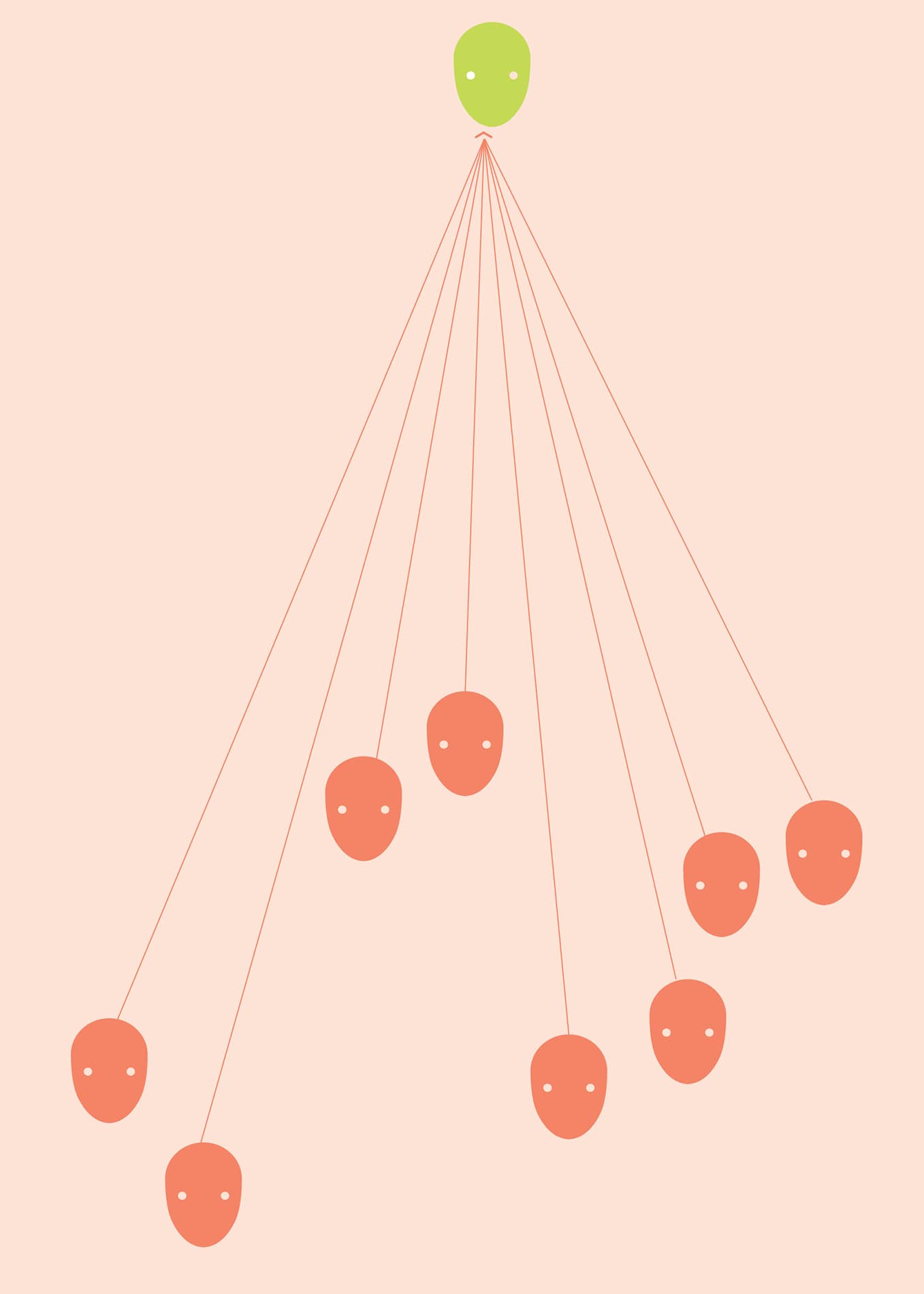

JOIN OUR CLUB!
Certain ideologies can lend certain people advantages over others. In the same way that a computer program like Word might work better on a specific operating system, some people can move more easily in one ‘habitus’ than another. Not because they know the rules particularly well, but because they’re ‘privileged’ by the system. There are background beliefs that favour some folk over others.
The 20th-century French philosopher and novelist Simone de Beauvoir described this kind of ‘privileging’ of men over women in her book The Second Sex (1949):
‘I have already said how hostile the street is … if [a woman] lights a cigarette in a café, if she goes to the cinema alone, an unpleasant incident can quickly occur; she must inspire respect by the way she dresses and behaves … “Her wings are clipped.”’
Our society is shaped by an ideology that privileges men. We download the rules automatically, picking up directions from the way people treat us and appear in books, TV and advertising.
Let’s think about this in more concrete terms. Take Joanna and Will. Joanna is a young woman. Will, her boyfriend, is a slightly older man. In most countries, they’re supposed to be legally treated as equals. But what about ideologically? If what Haslanger says is true (and I think it is), Will tends to enjoy powers that Joanna does not. He’s routinely given greater credibility. He’s seen as the author of his own actions. He’s defined in relation to no one but himself.
This is a societal imbalance we’ll want to address. But there’s a problem here. As the epistemologist Charles W. Mills points out, our ideological biases are hard to spot because we think of them as natural. Sure, Will might love Joanna, but he’ll find it hard to see when and how he’s being unfairly empowered – because the ideological biases ruling in his favour are so deeply entrenched in society.
As Mills also points out, it’s a lot easier to be ignorant of ideology when you’re not suffering from its effects. (If you use computer programs that work well in Windows X, you probably won’t think about the operating system’s flaws.) So not only is Joanna the victim of this bias, but Will is less likely than she is to be aware of it.
We all know that feeling of being ‘out of place’. Unfortunately, some of us experience it a great deal more than others. Mills and Haslanger encourage us to assess where our ideological biases lie and which ones we benefit from. Take a moment. Have a think. Have you ever been harassed in the street? Do your bosses or teachers look like people of your social race? When you fail or succeed, do people attribute it to your gender? When you watch a Hollywood blockbuster, who do you identify with? Ignorance of these things might be bliss, but it’s also profoundly unfair.
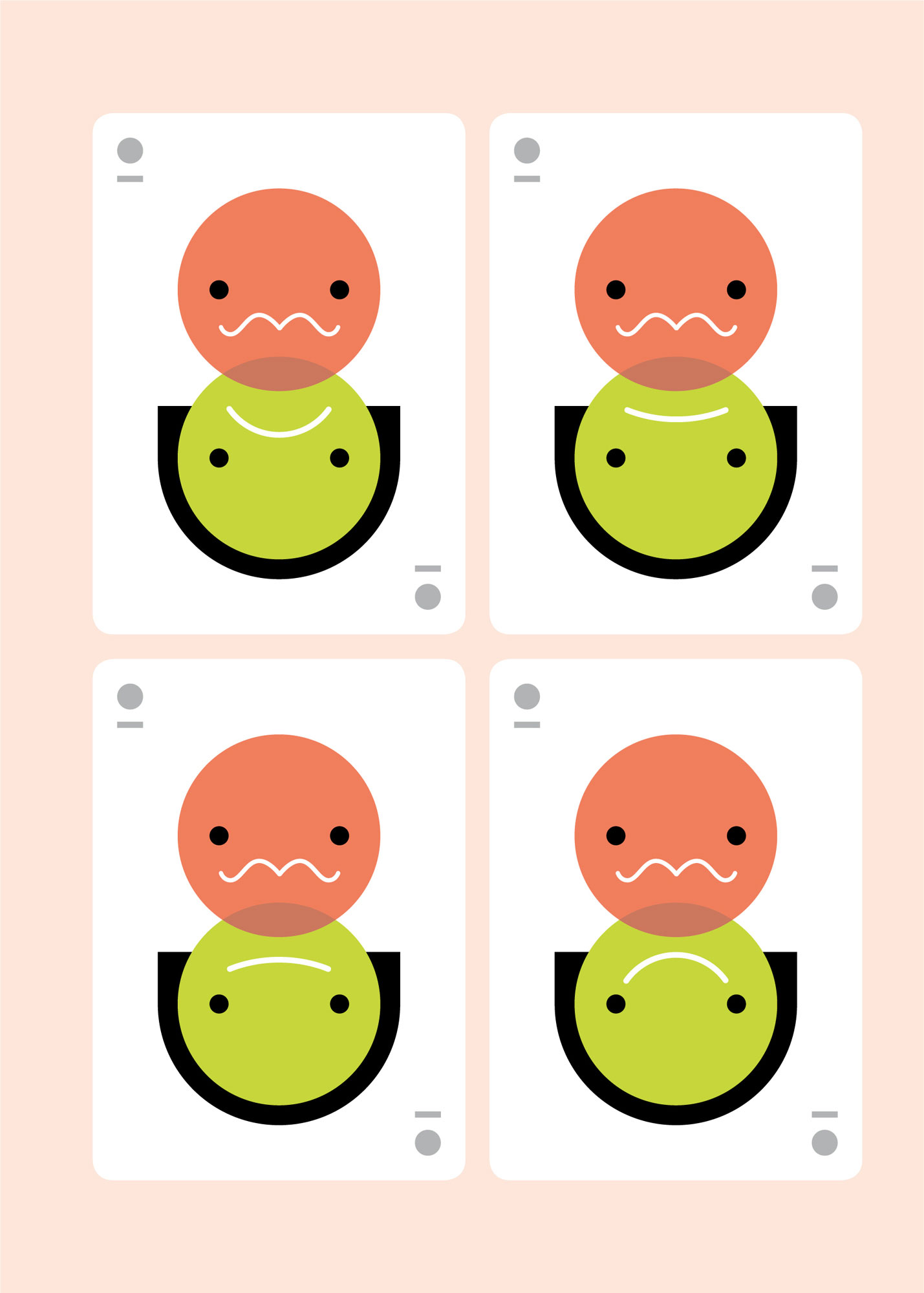

MAKING AMENDS
Let’s take a clear case of wrongdoing. Bob is a greedy guy and ‘morally ambivalent’ to boot. He breaks into Hari’s house, beats Hari up and steals Hari’s money. Bob, it’s fair to say, is guilty of this crime. Hari deserves justice, and Bob should be the one to pay. He’s ‘morally responsible’.
This kind of story fits neatly into our standard model of responsibility. We find an early articulation of this model in Aristotle’s Nicomachean Ethics, written in the 4th century BC. There, Aristotle states that only certain types of beings can bear responsibility: they must, at the very least, possess the ability to consciously decide to do something. You can’t, for instance, hold a tree responsible for falling over and crushing a car; it’s not conscious, it didn’t decide to fall over.
Aristotle elaborates. A conscious agent is only responsible for an act if they’ve decided to do it freely (they haven’t been coerced) and if they know what it is that they’re bringing about. Nobody forced Bob to break into Hari’s house – he does so freely, out of greed. Nor is he under any illusion about the consequences of his actions. He knows that if he hits Hari, he’ll leave bruises, and that the money he takes is not Monopoly money, it’s real. So Bob should be held responsible.
This framework of moral responsibility has been serving humans for thousands of years. But things aren’t always as simple as Bob’s story suggests. There are cases where responsibility is harder to place. Imagine, for instance, that you’re taking a dog out for a walk and it poops – shock! horror! – in a public park. Whose responsibility is it to clean up? And what if your baby scratches a car by flailing with its rattle – who takes responsibility? In neither case do you commit the act, but in both you might reasonably be held responsible.
Let’s extend the story. Bob, in addition to being a thief, is a canny investor. After his crime, his business grows. He and his wife enjoy a luxurious lifestyle and have lots of children. A couple of generations down the line, Bob’s great-granddaughter, Roberta, starts a family of her own. She’s done well out of her great-grandfather’s empire – she’s been privately educated, lived in affluent parts of town, and receives top-notch health care. On top of all that, she’s a nice person. She gives to charity, she’s kind to her friends and helps out at a local homeless shelter.
Unfortunately, Bob’s crime remains unpunished. Roberta’s great-grandfather is long dead, so on the Aristotelian model, the responsible agent can’t be held to account. Does this mean nobody’s responsible? Roberta didn’t commit the crime, and might not even know about it. It’s not her fault that Harriet, Hari’s great-granddaughter, is living a hugely impoverished life because of the unpunished crime suffered by Hari.
How can the Aristotelian account cope with this? It doesn’t look like it can.
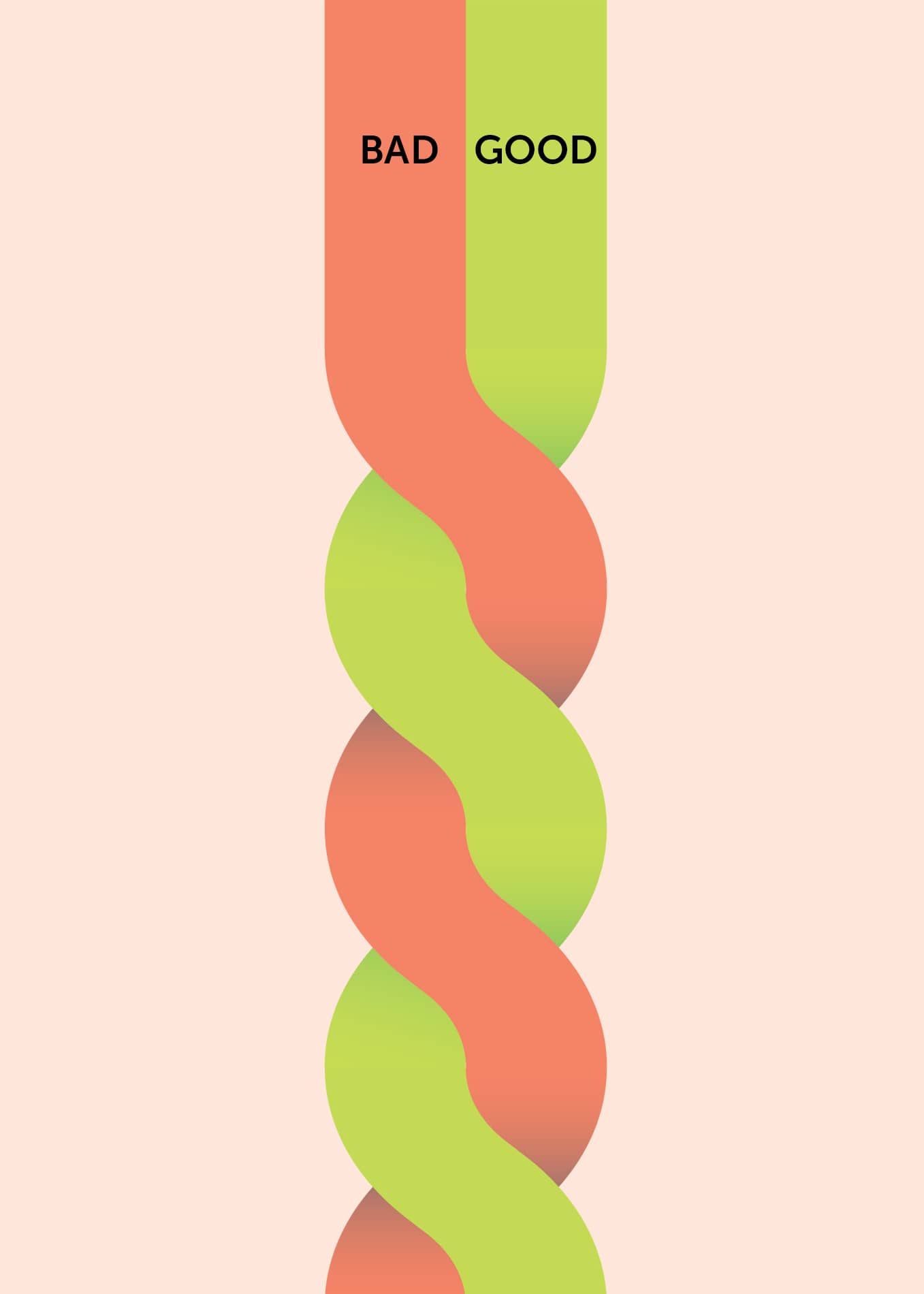

WHO SHOULD TAKE RESPONSIBILITY?
There are serious forms of injustice which Aristotle’s account seems incapable of accommodating. Take, for example, corporate responsibility. An oil company sends its ship across the sea, and there’s an oil spill. Wildlife is destroyed, water is contaminated. No individual person appears to have acted wrongly. Where does the responsibility lie?
And what about intergenerational responsibility? The story of Bob, Roberta, Hari and Harriet might seem contrived, but there are countless examples of historical injustice for which no one (according to Aristotle) can be held responsible.
Consider, for instance, the ‘Great’ British Empire. It committed innumerable atrocities in the name of queen and country during its centuries-long rule. British society benefitted, and continues to benefit, from the heinous actions of the colonial regime. The same is true of other European powers, such as France, Holland, Spain, Portugal … (the list, unfortunately, goes on). Yet according to Aristotle, no one can be held responsible since the perpetrators – the agents who committed the crimes – are all long dead.
Then again, maybe the slave-owning Aristotle wasn’t the best judge? There are a growing number of philosophers who think he got wrongness all wrong. Here’s a short passage from Albert G. Mosley’s essay, ‘A Defense of Affirmative Action’ (1994):
‘… human beings are not atomized, self-serving entities. [They] conceive themselves as having distinct family lines and group identities, and are, more often than not, as concerned with providing benefits to those with whom they identify as they are concerned with benefiting themselves.’
Mosley suggests that Aristotle’s individualistic model misses an important dimension of unjust action. We don’t always act as self-serving ‘atoms’; we act as members of communities. The British colonialists didn’t just act for themselves, they acted for their descendants too. The same was true of American slavers – and, in the story above, of Bob.
Mosley’s suggestion is in line with the thoughts of the 20th-century political theorist Hannah Arendt. An individual, says Arendt, should take responsibility for other people’s actions when those actions were done for the sake of a community with which the individual identifies. Bob committed his crime for the sake of his family. Roberta identifies as a member of that family. As such, she should bear responsibility for her great- grandfather’s action.
You might still object. She isn’t guilty! She didn’t do anything wrong! And in a way, that’s right. As Arendt points out in her essay ‘Collective Responsibility’ (1987), guilt and responsibility are different things. Guilt, she says, is a personal matter. Responsibility is a political one. Roberta might not be guilty but as an issue of political restitution, she can be held responsible as a member of Bob’s family and a beneficiary of his unjust deed.
Likewise, citizens might not be guilty of historical, colonial injustices, but we may still be responsible as members of the society that benefits from them.


MORAL RUBBISH
The Earth’s a pretty big place, with a circumference at the equator of roughly 25,000 miles (40,000km) and a population of 7.5 billion people. It’s not easy to get your head around something so enormous. So let’s keep things small to begin with. Let’s start with Katy.
Katy’s friends are moving to a new flat. They’ve said she can stay in their old digs for six months – free of charge – while it’s being sold. Great! She has a grand old time, living it up in the neighbourhood, spending the rent-money she’s saved on partying. She’s not very tidy and she lets the plants die, but hey-ho! Eventually, the six months are up, and she decides to have a leaving party. Things get rowdy. There’s loud music and the neighbours bang on the walls. Katy and her friends spill wine on the sofa and overload the bins – but Katy isn’t too fussed. That’s the beauty of leaving parties: she’s leaving!
This, we think, is kind of uncool. For one thing, Katy’s actions have harmful effects on her neighbours. She can’t hear the sobbing over the rock music, but next door a young couple with toddlers are having a terrible time. There are also the new owners to consider. Temporal neighbours rather than spatial ones – they’re going to have to tidy up Katy’s mess after she’s gone. These are human-centred – or ‘anthropocentric’ – ethical concerns.
There are also ill effects for nonhumans. The neighbour’s dogs, for example, find rock music just as disturbing as their owners do. And remember the plants Katy neglected to water? They may not have been sentient entities, but they were beautiful, rare orchids and now they’re shrivelled up and dead.
Take a moment to imagine the uncoolness of Katy’s behaviour on a global scale. The consequences of global warming aren’t just wilted pot plants and irritated house buyers; the consequences are mass flooding, desertification and death.
Environmental ethicists can be split into two groups. Some focus on anthropocentric concerns. William Blackstone, for instance, says that global warming is bad because it’s harmful for humans. Obviously so. It’s already started to affect people. For instance, islands are being flooded in the Bay of Bengal, and the Tagus River on the Iberian Peninsula, on which millions depend, is drying up.
Rupert Read also talks about anthropocentric concerns but focuses on temporal neighbours – future human generations. Our treatment of the environment is, he says, creating horrible conditions for our descendants. Returning to the themes discussed in Lesson 15, Read says we’re committing ‘intergenerational injustices’.
There are philosophers who focus on non-anthropocentric concerns as well. We’ve already seen (in Lesson 7) that Peter Singer thinks nonhuman animals are worthy of moral concern. Theorists like Aldo Leopold also believe nonsentient entities, like forests and rivers, are worthy of moral consideration. Remember Katy’s orchids? Their death may not constitute an evil for humans, but Leopold thinks there’s something intrinsically worrying about killing them. He’s concerned that we use and abuse natural entities without fully understanding the complex relations that hold between them (and us).
‘A thing is right when it tends to preserve the integrity, stability and beauty of the biotic community. It is wrong if it tends otherwise.’
Anthropocentric or not, the harms caused by human-caused global warming are ethically troubling.
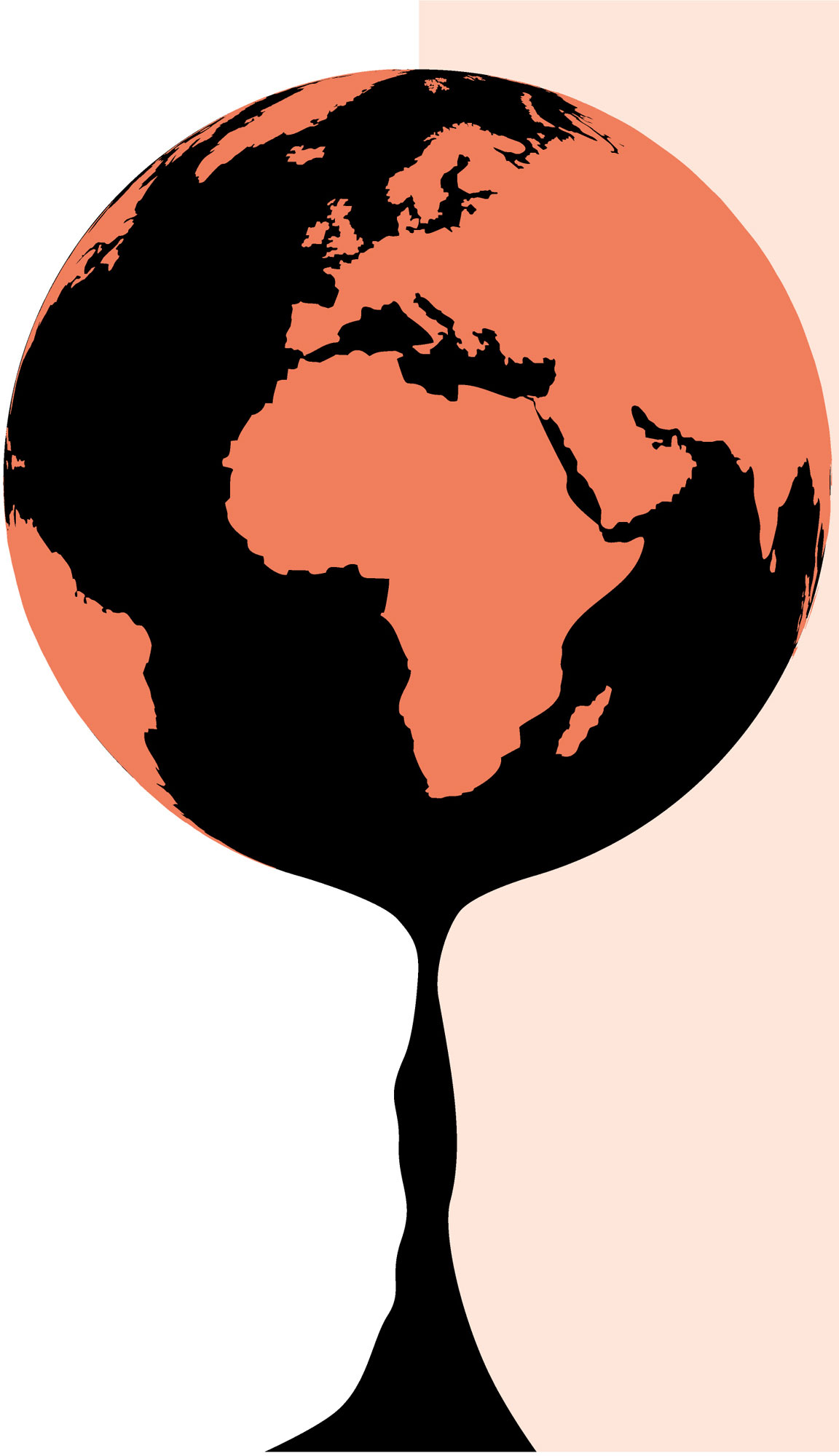

CAN WE TRUST THE EXPERTS?
There’s been a fair amount of philosophical discussion of environmental ethics. Yet most debates you’ll hear on the street aren’t about whether or not human-caused climate change is harmful – they’re about whether or not it’s real.
I’m not a climate scientist. The description in this chapter of global warming is a basic summary based on what I’ve learned from the Internet. Climate science, like astrophysics and biochemistry, is a complex field and it takes years to understand its subtleties – so it’s inevitable that I’m relying on the evidence of other people when forming opinions about it. This reliance, however, contains a minor element of epistemic risk. And this is what the ‘climate sceptics’ focus on. They say: What if we’re trusting the wrong people?
If you’re worried about this, you might benefit from reading the work of the 17th-century French philosopher Blaise Pascal. He is famous for an argument that appears in his Pensées, latterly known as ‘Pascal’s Wager’. The Wager focuses on a hotly debated topic of the day – the existence of God. Is there a supreme deity? In the Pensées, Pascal ingeniously shifts the discussion away from evidence for or against God’s existence. He says, instead, that it’s better to act as though God exists. Why? Because the potential rewards are infinite – an eternity in heaven! And the potential punishments are infinite too – an eternity in hell! These results, being infinite, outweigh any finite rewards (mortal pleasures) or punishments (mortal privations) that you’d enjoy or suffer if God doesn’t, in fact, exist.
This principle applies well to the climate sceptic’s claim. Maybe human-made climate change isn’t real. But it’s better to act as if it is. Why? Well, imagine we act as if it’s real when it isn’t – what are the downsides? We might, for instance, put up sanctions against oil drilling, fracking or coal mining. In due course, these sanctions will be overturned when they’re seen not to be working. That is, they’re finite. Imagine, by contrast, that we act as if global warming isn’t real, and we’re wrong. We’ll have depleted finite resources and destroyed millennia-old ecosystems. These are irrevocable, open-ended disasters. The ill-effects for humans are potentially infinite.
There might be a small epistemic risk in trusting climate scientists, but the potential benefits of combatting global warming are infinite. These seem like strong betting odds.
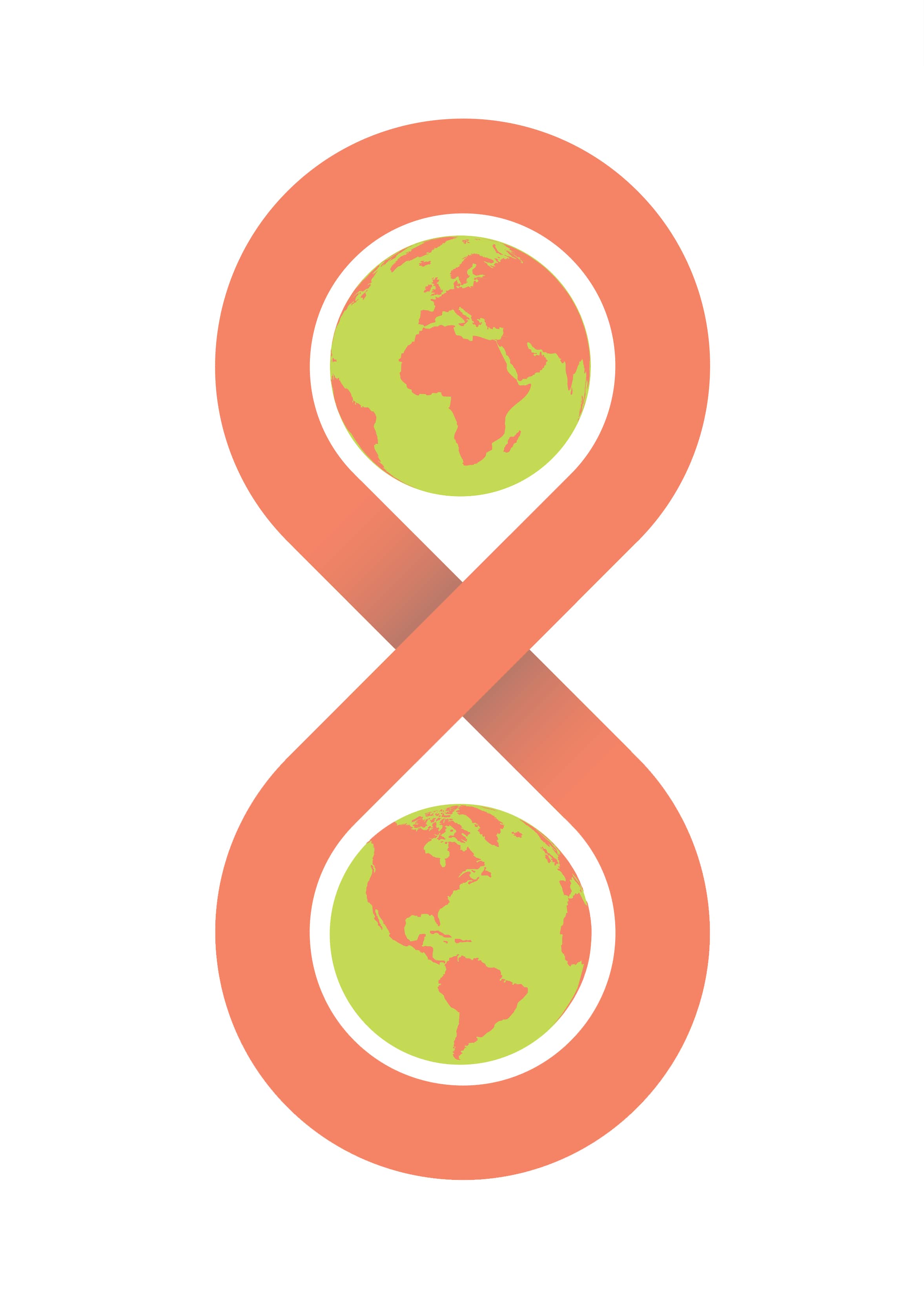

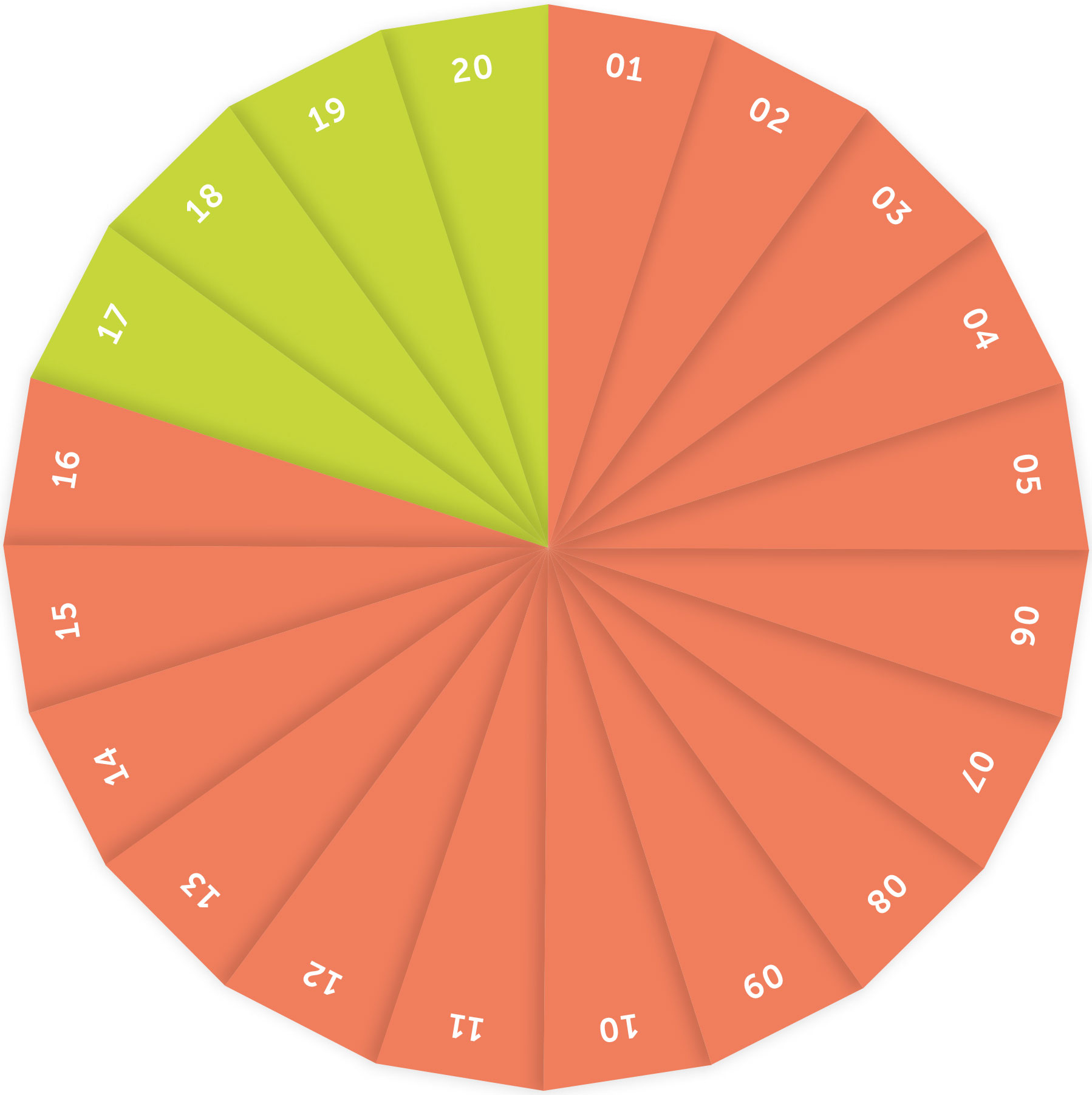 TOOLKIT
TOOLKIT
13
There appears to be no biological justification for the claim that ‘races’ are ‘natural kinds’. Nonetheless, it’s important to recognize ‘race’ as a social category.
Thinking point Are there other ‘natural’ groupings – like ‘men’ and ‘women’ – that would also benefit from closer scrutiny?
14
We experience the world through the filter of ideology and sometimes this encourages us to give powers to some people rather than others.
Thinking point Is it possible to find your ideological biases without the help of others?
15
We often think we’re morally responsible only for the actions we’ve performed ourselves. However, there’s a difference between responsibility and guilt. It’s possible (and sometimes necessary) to take responsibility for things you haven’t done.
Thinking point Can you be guilty of something you haven’t done?
16
Global warming results in anthropocentric and non-anthropocentric harms. And even if you’re not sure of the scientific evidence for global warming, it’s important to act as if you are.
Thinking point Global warming threatens the lives of our descendants – but might the creation of our descendants lead to global warming?

 FURTHER LEARNING
FURTHER LEARNING
READ
The Equality Illusion
Kat Banyard (Faber and Faber, 2011)
The Ethics of Climate Change
James Garvey (Bloomsbury, 2008)
Female Masculinity
Judith Jack Halberstam (Duke University Press, 1998)
Man Made Language
Dale Spender (Rivers Oram Press, 1980)
LISTEN
‘Reparations’ (5 February 2017), Philosophy Talk
Ken Taylor and John Perry talk to Michael Dawson. We’re lucky to live in an age of great philosophical podcasts – Philosophy Talk, beamed right out of Stanford University, is one of them!
WATCH
13th
Directed by Ava DuVernay, this brilliant documentary uncovers the oppressive and deeply disturbing ideological structure behind the American prison system.
The Boss of it All (Direktøren for Det Hele)
This Danish comedy directed by Lars von Trier invites the audience to consider where responsibility lies (and the lengths people go to avoid it).
Britain Does Owe Reparations
The renowned Indian politician Shashi Tharoor talks at the Oxford Union about the issues of reparation.
www.youtube.com/watch?v=f7CW7S0zxv4
VISIT
Battle of Ideas
Organized by the Institute of Ideas, the Battle of Ideas festival takes place annually at the Barbican in London. Topics are wide-ranging, and tempers often interestingly high.